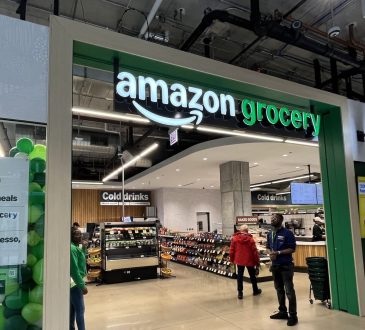From Censorship to Conversation: Meta Abandons Fact-Checking for Free Speech Revolution

Silicon Valley, CA – In a dramatic pivot, Meta, the parent company of Facebook and Instagram, has announced the termination of its controversial third-party fact-checking program. This move marks a significant departure from its earlier policies, which critics have long decried as a pathway to censorship. Instead, Meta is adopting a more community-driven approach akin to the Community Notes model championed by Elon Musk’s platform X.

The shift comes amid mounting criticism of Meta’s restrictive practices and growing demands for greater transparency and freedom of expression. In a blog post titled “More Speech and Fewer Mistakes,” Joel Kaplan, Meta’s Chief Global Affairs Officer, acknowledged the company’s missteps.
“We are making too many mistakes, frustrating our users and too often getting in the way of the free expression we set out to enable. Too much harmless content gets censored, too many people find themselves wrongly locked up in ‘Facebook jail,’ and we are often too slow to respond when they do,” Kaplan admitted.
The End of the Fact-Checking Era
Meta’s third-party fact-checking program had been designed to curb misinformation on its platforms. However, Kaplan’s admission that the program’s “fact-checkers” often exhibited their own biases highlights a growing recognition of the pitfalls of centralized content moderation.
“Over time, we ended up with too much content being fact-checked that people would understand to be legitimate political speech and debate,” Kaplan explained. This acknowledgment echoes longstanding critiques that the program blurred the line between combating misinformation and stifling open dialogue.
The censorship controversy extended beyond the actions of third-party fact-checkers. As previously reported, Meta CEO Mark Zuckerberg admitted that pressure from the Biden administration influenced the suppression of certain stories. This revelation further fueled accusations that Meta’s policies served political agendas rather than the interests of its users.

A New Chapter with Community Notes
Meta’s transition to the Community Notes model signals a profound shift in how the company plans to approach content moderation. This model empowers users to collaboratively assess the accuracy of posts, fostering discussion and debate instead of unilateral censorship. Kaplan described this as a “safer” approach that better aligns with Meta’s commitment to free expression.
Brent Bozell, Founder and President of the Media Research Center, lauded Meta’s decision, calling it “a giant step toward helping to grow freedom everywhere.”
“I commend Mark Zuckerberg for doing the right thing and enacting real, meaningful reforms to move Facebook closer to a platform for free speech. I know Mark has long believed that his company should strengthen freedom and democracy around the world,” Bozell wrote in a statement.
Criticism Lingers
Not everyone is convinced by Meta’s course correction. Justin Giboney, leader of the Christian organization The AND Campaign, offered a more skeptical take.
“Moral of the story: Meta is about maximizing profits. When it was in their best interest to censor, they did. Now that it’s not in their best interest, they won’t,” Giboney posted on X.
Giboney’s critique underscores a broader concern about the motivations driving Meta’s policy changes. Many believe the decision is less about principles and more about adapting to a shifting political and cultural landscape, particularly in light of Donald Trump’s recent election victory. Zuckerberg himself hinted at this in an online video, stating, “The recent elections also feel like a cultural tipping point towards once again prioritizing speech.”

Balancing Free Speech and Accountability
While Meta is moving away from fact-checking, it will continue to enforce restrictions on illegal activities and “high severity violations” such as terrorism, child sexual exploitation, and drug-related content. This approach reflects a delicate balancing act between promoting free expression and maintaining a safe, lawful digital environment.
A Cultural Tipping Point
The decision to scrap the fact-checking program represents a watershed moment for Meta and social media at large. It signals a broader reckoning with the role of tech giants in shaping public discourse. Critics and advocates alike are watching closely to see whether Meta’s embrace of the Community Notes model will deliver on its promise of fostering a more open and democratic digital space.
As Zuckerberg navigates this critical juncture, one thing is clear: the world’s largest social media platform is stepping into uncharted territory, where conversations—not gatekeepers—will determine the truth.




